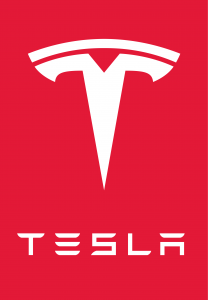An analyst from Barclay’s, Brian Johnson, has recently published a lengthy research document to support his bearish stance on Tesla stock. According to him, there are several factors that Tesla investors will often cite to justify their investment decision – however, Johnson believes that these factors are more reflective of the reality for Tesla.
One of the first criticisms Johnson makes concerns the outlook for battery packs. Investors often believe that Tesla has a significant advantage in this space – according to the faithful, Tesla will be able to produce a $100 per kilowatt hour battery in the near future. But Johnson believes this is simply not true. For starters, the time it would take to achieve this battery has been understated. More importantly, the competition in this space is heating up – several of Tesla’s direct competitors are large and have the ability to scale quickly.
Next, Johnson attacks the belief that Tesla is a market leader in the autonomous driving industry, and that it will be the first to bring to market a truly self-driving vehicle. The idea that the company is ahead of the game is not really true simply because Tesla has released a product already. The data produced by Tesla’s runs is unclear and unsupportive of growth. Further, there rigor and scale required to produce autonomous technology may not be found at a company like Tesla.
In the auto industry in general, investors tend to compare Tesla with the iPhone, in the sense that the products from Tesla will be revolutionary, changing the car business forevermore. Johnson simply notes the competition in the industry to dispel this claim. He cites production inefficiencies as problematic, as well as the cash-intensive production requirements that are unsustainable. These factors may prevent the company from meeting demand, which Johnson admits there is plenty of.
Next on the chopping block is the assumption that Tesla will be a market driver outside of the auto industry – investors perceive of Tesla as about to make great strides in energy, mobility, and insurance. The competition in the energy storage industry is extremely misrepresented, according to Johnson. There are large players capable of defeating Tesla given the right conditions. The same is true of mobility and insurance, which already have well-established market leaders in their respective industries.
Despite these logical flaws in investors’ reasoning, many prefer to overlook the problems and continue to see value in the firm – recently, the stock hit all-time highs, approximately $300 as of last week. But Johnson believes this price is not justified by the fundamentals of the company. Rather, he perceives it as being entirely momentum-driven. And according to him, there is little chance of anything happening in the near future to reverse this momentum.
His analysis indicates that a major self-off in the high-valued technology companies could affect Tesla’s stock price. However, the only other event that could send shares tumbling is a serious mistake in the launch of the new Model 3.
Johnson’s current price target for the firm is $165 – about 50% less than the current trading price.
As usual, Tesla advocates noted that the stock price is indicative of potential as opposed to current plans. Musk himself has confirmed a similar belief.
And despite Johnson’s protests on the issues, a main attractor for Tesla is the belief that the firm’s prospects extend far beyond electric cars. Analysts have argued as much: a research report from JP Morgan outlined the various trillion-dollar markets that Tesla is poised to enter. Clearly, a consensus will not be reached any time soon.

